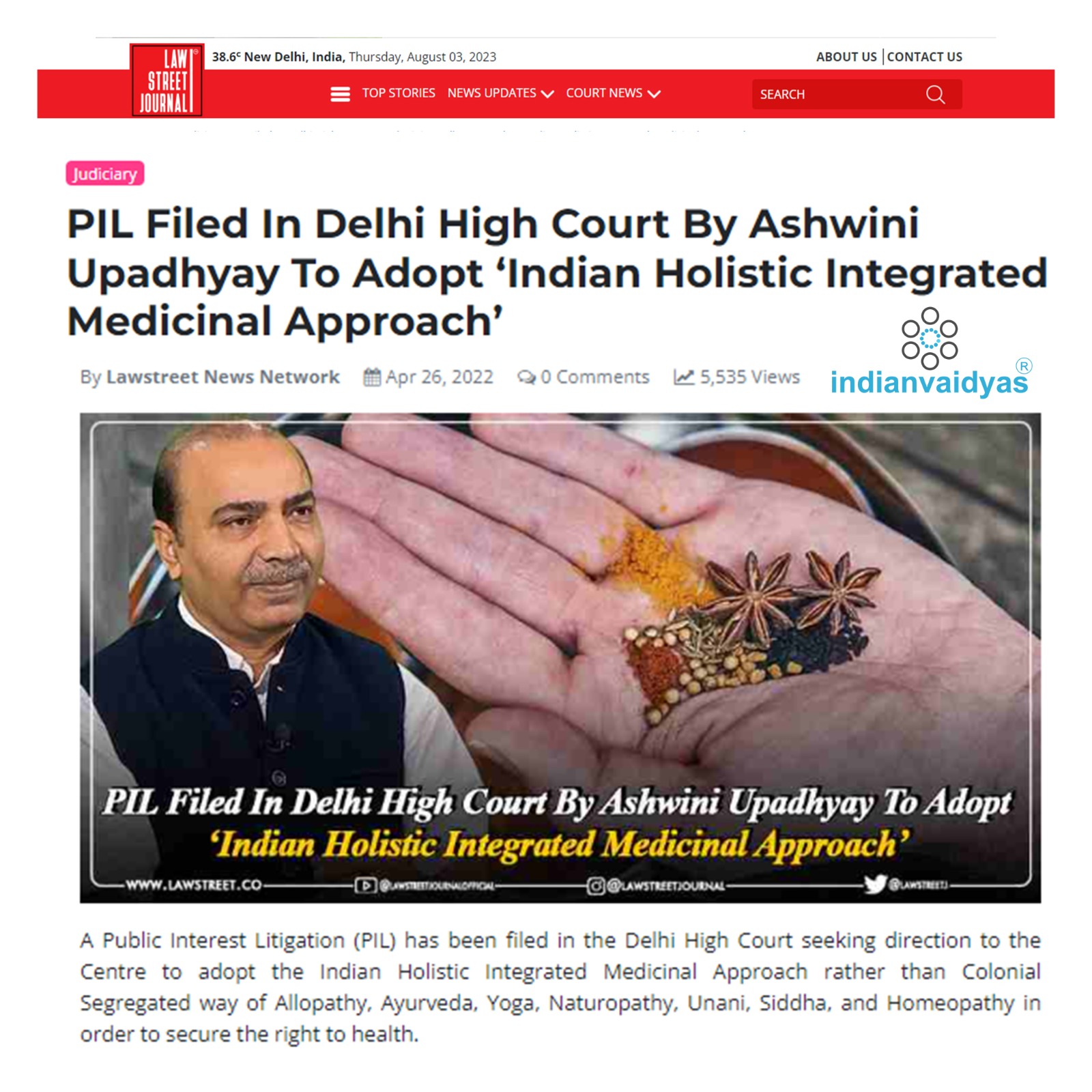PIL Filed In Delhi High Court By Ashwini Upadhyay To Adopt ‘Indian Holistic Integrated Medicinal Approach’
03-Aug-23 04:48:12

A Public Interest Litigation (PIL) has been filed in the Delhi High Court seeking direction to the Centre to adopt the Indian Holistic Integrated Medicinal Approach rather than Colonial Segregated way of Allopathy, Ayurveda, Yoga, Naturopathy, Unani, Siddha, and Homeopathy in order to secure the right to health.
The Ministry of Ayush, Ministry of Health and Family Welfare, Ministry of Women & Child Development, Ministry of Home Affairs, Ministry of Law & Justice have been made parties to the matter.
The plea seeks direction to implement a Holistic Integrated Common Syllabus and Common Curriculum of Allopathy, Ayurveda, Yoga, Naturopathy, Unani, Siddha, and Homeopathy for all medical colleges in order to secure the right to health.
The petitioner, Ashwini Kumar Upadhyay, practicing lawyer and BJP leader submitted that in spite of huge investment, the current health care system of India is not able to meet its standards and benefit the Indian population to fight against acute and chronic diseases.
Healthcare delivery in India is classified under three categories primary, secondary and tertiary care. All three levels need to work in a cohesive manner to help deliver healthcare on all four pillars.
The petitioner submitted that in the healthcare system of India, sub-centres and primary health centre’s subsidize the primer level of Healthcare Sector (HCS); Community Health Centre contributes to a secondary level of HCS; although hospitals and medical colleges are considered in the tertiary level of HCS. Population Norms for Rural Health Care Infrastructure are as given on the next page, he said.
The petitioner further submitted that the suggested holistic integrated medicinal approach will favor the financially deprived section of the Indian population as this approach will be pocket friendly with high reach and will be able to cover such a huge dense population of the country thus making the medical education available for one and all and to support evidence-based medicine, not any particular pathy. It will also help them to build a sense of responsibility to serve their society which cannot be possible in the case of modern medicine, he added.
The petition stated that on September 15, 2020, in Rajya Sabha on the question of availability of doctors per capita, the Minister of State, Ministry of Health and Family Welfare said that as per information provided by the Board of Governors in supersession of Medical Council of India (MCI), 12,55,786 Allopathic Doctors are registered in MCI.
Assuming 80 per cent availability, it is estimated that around 10 lakh doctors may be actually available for active service. It gives a doctor-population ratio of around 1:1500 as per the current population estimate.
"There are 7.88 lakh Ayurveda, Unani, and Homeopathy (AUH) doctors. Assuming 80 per cent availability, it is estimated that 6.30 lakh AUH doctors may be available for service and considered together with allopathic doctors, it gives a doctor population ratio of around 1:1000," stated the plea.
"In order to establish an integrated medicinal system, the Government has already made certain amendments to enable these provisions to become a part of health care policies. But so far adopted strategies are not sufficient to provide an adequate platform for an integrated medicinal approach. Therefore, it is mandatory to make appropriate amendments to legalize the status of the integrated medicinal system," read the plea.
SOURCE & CREDIT: LAWSTREET JOURNAL